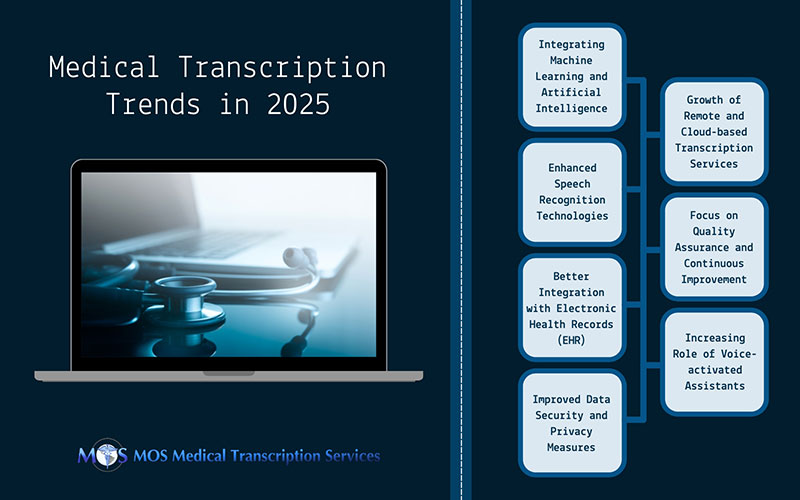Millennials now have a major impact on every industry, including healthcare. Reports say this group of people born between 1981 and 1996 could reshape the healthcare industry, especially telehealth, and are upending the primary care model. This demographic seeks the same digital solutions in healthcare as in other aspects of their lives. The majority of millennials want access to healthcare on their mobile devices, according to a Harris Poll survey (www.mobihealthnews.com). Physicians need to maintain accurate electronic health records (EHRs) to meet the needs of millennials and medical transcription services can help with this. Here are the ways in which millennials are transforming health care:

- Are less likely to have a primary care provider: Physicians Practice recently reported that a new poll by the Kaiser Family Foundation showed that millennials are less likely than previous generations to have a primary care physician (PCP). In the poll, 45 percent of 1,200 random persons ages 18 to 29 reported they did not have a PCP. The reason for this is millennials’ preferences for convenience, fast service, connectivity, and price transparency, which the traditional office-based primary care model does not offer.To get the care they need, millennials are opting for alternatives such as walk-in retail or pharmacy-based clinics or outlets, free-standing urgent care centers that offer flexible hours, and virtual visits at telemedicine sites. A PNC Healthcare study showed that 34% of millennials prefer to go to a pharmacy clinic, while 25% prefer urgent care. Most retail clinics post their prices which are also affordable. Fast service and less waiting times are other attractions of these walk-in clinics.
- Have an affinity for telemedicine: Telemedicine allows patients to link with physicians using a phone or interactive video conferencing from the comfort of their home. Reports say that patients have reported higher levels of satisfaction with the telemedicine visit compared to the traditional visit. Millennials are increasingly opting for telemedicine. In a 2017 Employee Benefit Research Institute/Greenwald & Associates Consumer Engagement in Health Care Survey, 40 percent of millennials reported that telemedicine is an “extremely or very important” option, compared with 27 percent among Gen Xers and 19 percent among baby boomers (Healthcare IT News).
- Are avid technology adoptors: Gen Y loves technology and are “early technology adoptors”. A 2018 Pew Research Center study reported that more than nine-in-ten Millennials (92%) own smartphones, compared with 85% of Gen Xers, 67% of Baby Boomers and 30% of the Silent Generation. Also, the vast majority of Millennials (85%) say they use social media. This implies that, to target this group, healthcare providers need to understand the tech behaviors and preferences of this generation. They should be able to offer options such as online health portals, self-serve kiosks, online appointment scheduling, electronic medical record review, and online payment facilities.
- Research online before making a healthcare decision: Generation Y relies on online resources including and their social networks to learn about their healthcare concerns and options. They google symptoms of their non-urgent health concerns online before they select a physician or fix an appointment. They may even self-treat. The survey mentioned in the Healthcare IT News report found that compared to baby boomers and Gen Xers, millennials are more likely to shop around and research healthcare options. Before seeking care, Millennials were more likely to have: checked on coverage for medications and quality ratings for a healthcare provider; discussed prescription and treatment options and costs with a physician, and used an online cost-tracking tool provided by a health plan to manage expenses.
- Are very concerned about security of their personal health information (PHI): With millennials using online portals to send and receive as health care communications, they are also sensitive to data security concerns, according to a www.healthcarebusinesstech.com report. To minimize such concerns, portals used by hospitals and doctors will need to incorporate technology that promotes better privacy protection. When outsourcing EHR documentation tasks, they will need to choose a HIPAA compliant medical transcription service provider.
Physicians are adopting special strategies to cater to the expectations of this generation. According to a Beckers Hospital Review report, many primary care practices are hiring more physicians and nurse practitioners to reduce patient wait times. They are adopting patient-facing digital tools to better serve millennial patients and implementing other strategies to serve their needs, such as:
- Replacing the office landline appointment booking method with scheduling software that will allow patients to book their own appointments online.
- Sending text reminders on upcoming appointments
- Greater flexibility in working hours such as keeping the lunch hour open for visits which is convenient for patients who can’t miss work.
- Making it easier for millennials to get care by communicating with them on social media platforms
- Ensuring more transparency in pricing and offering payment plans
Industry experts say that PCP practices that don’t refine their operations to meet millennials requirements could experience a fall patient volume over time. Partnering with an experienced medical transcription company in the USA can help providers manage their EHR documentation tasks as they strive to keep up with the demands of this demographic.


